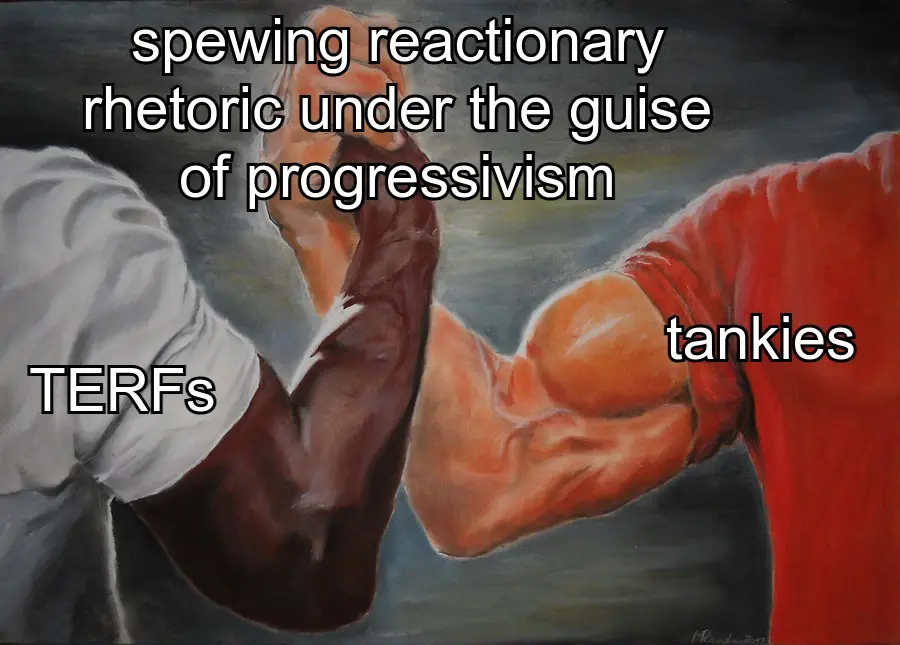this post was submitted on 23 Jul 2023
333 points (99.7% liked)
196
16745 readers
2302 users here now
Be sure to follow the rule before you head out.
Rule: You must post before you leave.
founded 2 years ago
MODERATORS
you are viewing a single comment's thread
view the rest of the comments
view the rest of the comments

As I see it, one of the main problems is that of suitability: the people suited to win a revolution, which is basically a war, with all the strict hierarchy that entails, are rarely as suited to administrate an egalitarian society in peacetime. It's sorta like putting Michael Phelps in charge of the gymnastics team 🤷
A good (and entertaining) primer on revolutions is the now completed Revolutions podcast. I think you'll find revolutions more complex than that simplistic characterization. Most violence in a revolution happens during the counter revolution.
Raising the spectre of possible revolutionary violence ignores the violence of the current system. Can you imagine the world overcoming climate disaster, with all the carnage it will bring, while under the rule of capitalism? Any revolutionary violence should be compared against the ongoing and future violence of capitalism, and its interconnected systems of white supremacy and patriarchy.
Edit to add url for podcast: http://www.sal.wisc.edu/~jwp/revolutions-episode-index.html
https://podcasts.apple.com/us/podcast/revolutions/id703889772
The solution that I personally like is the EU model as a stepping stone. The gradually increased power of a tested system provides resistance against collapse under singular entities. Political metamorphosis can involve bloodshed but doesn’t necessarily have to, which skips over some potential pitfalls while creating some less dire ones. Though it’s slow and bureaucratic. Still, nothing preventing someone from opening a ritzy little butcher shop on Fleet Street in the meanwhile to expedite the process.